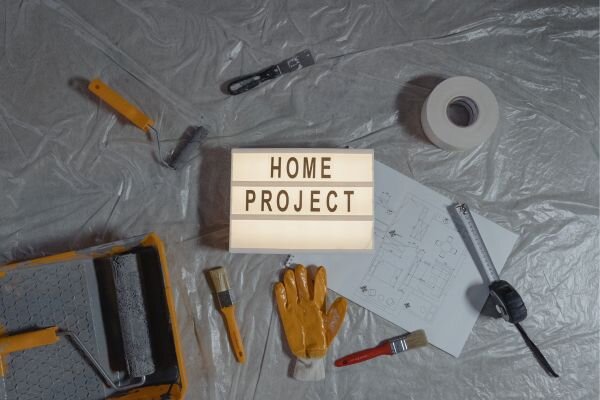
Are you a Stockton , Ca homeowner who heard the term “lien” and wondered what it meant? Liens are legal claims against your property that can impact your ability to sell or refinance your home. They are an important aspect of property ownership, but they can also be confusing. In this blog, we will cover everything you need to know about liens on your property. From understanding what liens are and how they work to discovering any mortgages on your home, we will break down the different types of liens that can affect your property. We will also discuss how to remove liens from your home, the cost of doing so, and important concepts like lien subordination and levy. By the end of this post, you will have a better understanding of liens and how they can impact your property ownership.
Understanding Property Liens California
It’s essential to understand liens on a house as they can significantly impact the refinancing or sale of your property. Liens are legal claims that creditors or contractors place on a specific property. Different types of liens exist, including voluntary and involuntary liens, such as mortgage liens, mechanic’s liens, and judgment liens from lawsuits or creditors. When faced with a lien, you have an array of options to resolve it, including paying off the debt or negotiating a settlement. Hence, it’s vital to know your legal rights and seek advice from professionals.
What Are Liens and How Do They Work?

Liens are legal rights that creditors have over a property to secure their debt. It can be placed on various assets and can be voluntary or involuntary. Once the debt is paid off, liens can be released. Knowing about liens is crucial for both creditors and debtors to safeguard their interests in properties.
How to Discover Liens on Your Home
Discovering if there are any liens on real estate can be done by following some simple steps. Begin by contacting your county recorder’s office to research whether there are any pending collateral claims or legal rights about the possession of the property. After this, check for any liens or debt obligations that could lead to a lien filing against you. If necessary, hire a professional title search company that will conduct an extensive investigation into the history and uncover potential security interests related to statutory mortgage claims such as mortgage loans and voluntary liens from lenders and creditors. Make sure you fully understand all the different types of liens before purchasing a property.
Different Types of Liens on Your Property

Liens are a legal right that creditors possess to secure an unpaid debt. They can be voluntary or involuntary and apply to real estate, personal property, or financial assets. Mortgage liens act as collateral for a mortgage loan and act as a statutory lien that gives the lender a security interest in the property. Tax liens arise when there are unpaid taxes owed to the government, which affect the sale or transfer of ownership of your property. Mechanic’s liens arise when contractors or suppliers have not received payment for work done on your property. Judgment liens result from court judgments against the owner and affect the ability to sell or transfer ownership of your home. HOA liens arise when homeowners fail to pay fees or dues to their homeowner’s association.
Mortgage Liens and Their Impact
A mortgage lien is a creditor’s legal claim on real property as collateral for a mortgage loan. Mortgage lenders can foreclose or repossess if payments aren’t made. There are two types of mortgage liens: First and Second, based on their filing date with the county recorder’s office. Owners having mortgage liens may encounter challenges when selling or refinancing their properties. Understanding your mortgage agreement and making timely payments is vital to prevent complications specially in selling a house with a lien.
Tax Liens from the IRS and Other Entities
When one fails to pay their taxes to the government entities like IRS on real or personal property they own; this results in legal claims called tax liens. These liens can negatively affect one’s credit score and can make it harder to sell properties resulting in foreclosure if left unresolved. In such cases working with an attorney or tax professional would be helpful. Resolving these liens could involve paying off the debts in full or negotiating with either the government entity involved or filing for bankruptcy as a last resort.
Mechanic’s Liens for Home Improvement Projects

When contractors, subcontractors, or suppliers go unpaid for their work on a house, they may file a mechanic’s lien. This type of lien gives them a legal right to the specific property until they receive payment. Preventing such liens involves paying all contractors and suppliers in full before closing the project. In case of filing such a lien, resolving the payment dispute promptly can help avoid further legal action.
Judgment Liens from Creditors and Lawsuits
Legal claims by creditors can lead to judgment liens on real or personal property until the outstanding debt is paid off. Judgment liens affect the sale or refinancing of the property until their release. Keeping abreast of any legal proceedings taken against you helps avoid unexpected judgments and associated mortgages. Work closely with a lawyer to explore alternatives when dealing with these issues.
Child Support Liens and Their Effects on Your House
Enforcing unpaid child support payments is done by placing a child support mortgage on your property. This type of lien takes precedence over other types of liens and can impede your ability to sell or refinance your real estate. Typically, the lien equals the outstanding amount owed in child support payments. Addressing these liens swiftly by working with the government to create a payment plan or obtaining legal help is crucial.
How to Remove Liens from Your Home

To eliminate liens from your real property or personal property collateral, you should first recognize the specific type of lien attached to your home. You may then choose to pay off the outstanding debt i`n full or negotiate a compromise arrangement with the lienholder. Once resolved, file a legal claim and lien release with the proper government office to clear your title search. Seeking professional assistance can make this process smoother. Avoiding disputes with contractors and paying bills promptly can keep you from encountering voluntary liens such as mechanic’s liens or statutory liens like property tax liens.
The Cost of Removing a Lien from Your Property
When dealing with liens on your property, understanding the specific type of lien is crucial for their removal. Once identified, there are several ways to deal with them. Depending on where you live and what kind of legal claim has been made against your real or personal property, an individual may be able to pay off the debt or negotiate a settlement with their creditor or lender. It is also possible to file a lien release with an appropriate government agency if possible. However, it is essential to do so promptly to avoid extra charges and potential legal consequences.
Understanding Lien Subordination and Levy
When obtaining new financing for your property, it may become necessary to change the order of liens on your property through lien subordination. This legal right allows lenders to take possession of personal or real property in case of default by the borrower. In contrast, a levy is a legal claim against either personal or real property used to satisfy an outstanding debt or obligation. Liens can result from various sources like taxes, mortgages, and judgments and may be voluntary or involuntary.
How do I obtain a lien?
You must file the lien with either the property recorder’s office or the clerk of court, depending on your state’s requirements. Liens must be filed in the county where the subject property is situated if they are to be valid.
What is an example of a lien?
A lien is a legal claim on property or assets as collateral for a debt. Examples include a mortgage on a home or an auto loan with a lien on the vehicle, allowing repossession for non-payment. Liens can apply to various properties and intellectual assets.
Conclusion
In conclusion, understanding liens on your property is crucial to protecting your investment. Whether it’s a mortgage lien, tax lien, mechanic’s lien, or any other type of lien, it’s important to know what you’re dealing with and how to address it. Discovering a lien on your home can be daunting, but there are ways to remove them and protect your property. If you’re unsure about the process or need help navigating it, seek professional assistance from experienced attorneys or real estate professionals. To learn more about liens and how they work, read our comprehensive guide on lien basics now.

Contact Us
We would love to hear from you! Please fill out this form and we will get in touch with you shortly.

